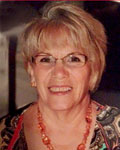March 29, 2019
PUBLISHER’S CORNER
 By Eloise Graham
By Eloise Graham
National Library Week – April 7 – 13
I recently saw a quote by David McCullough that said, “I think the public library system is one of the most amazing American institutions. Free for everybody. If you ever get the blues about the status of American culture there are still more libraries than there are McDonald’s. During the worst of the Depression, not one public library closed its doors.” I wanted to share this thought with you, the readers. What better time than in April as we acknowledge National Library Week.
Let’s look at the history of this amazing American institution. The oldest American library began with a 400-book donation by a Massachusetts clergyman, John Harvard, to a new university that eventually honored him by adopting his name. That was in 1638. Another clergyman, Thomas Bray, established the first free-lending libraries in the American Colonies in the late 1600s. Subscription libraries debuted in the 1700s. These were libraries where member dues paid for book purchases and borrowing privileges were free. In 1731, Ben Franklin and some others founded such a library in Philadelphia, the Library Company of Philadelphia. It wasn’t until waves of immigration and a philosophy of free education for the children that public libraries spread in the US thanks, in part, to Andrew Carnegie.
Andrew Carnegie, though not the first to have a library in the United States, is reported to have helped build more than 1,700 public libraries in the United States between 1881 and 1929. Mr. Carnegie believed in giving to the “industrious and ambitious, not those who need everything done for them, but those who, being most anxious and able to help themselves, deserve and will be benefited by help from others.”
My hometown had a Carnegie Free Library the city park. It is a stately building of neoclassical architecture, looking a lot like the Jefferson Memorial. I always thought it was a mystical and magical building.
I remember the large wooden file cabinet that held those little cards with funny numbers and codes on them. Soon I learned to decipher their code and realized I had mastered, well at least learned, the Dewey decimal system. I thought it was fun to go to the card catalogue, look up a book, then see if I could find it in the stacks. A feeling of accomplishment.
Now, everything is done electronically, with a search engine. Times have changed, libraries have changed. No longer do pages carry rolled up scrolls in wooden buckets (this harkens back to the Library in Alexandria circa 305 – 282 BC) or are there large wooden file cabinets with little drawers of organized cards, but the need for a repository of knowledge remains.
Check out the local libraries. They are much more than a building with a lot of bookshelves.


